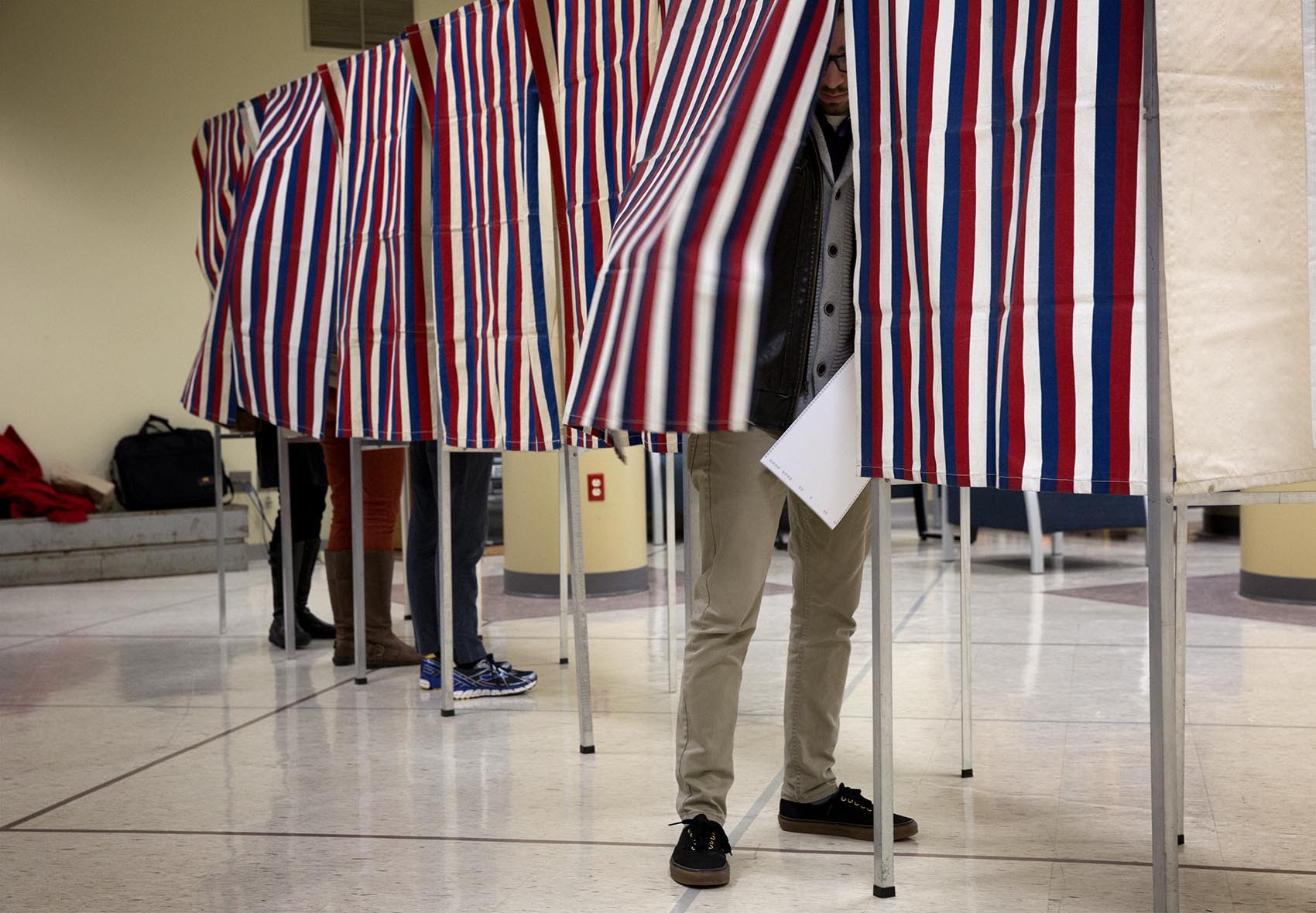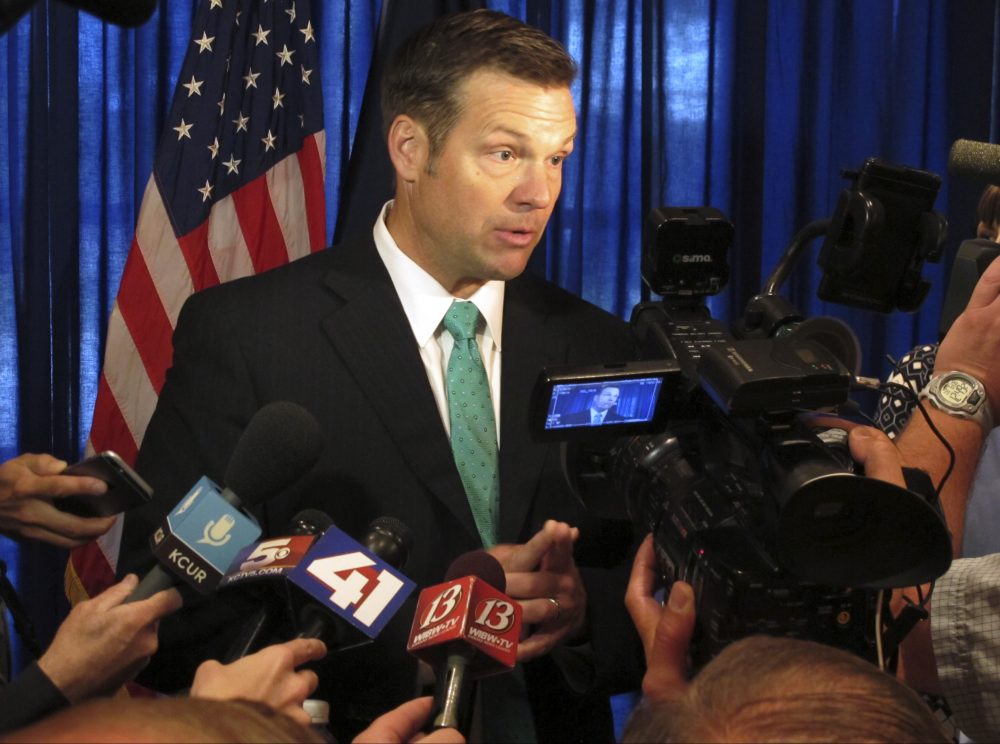Advertisement
Commentary
Why You, Millennials, Should Vote In 2018 — While You Can

If you’re an American between the ages of 18 and 35 who enjoys the power to weigh in on what our government does — even if you don’t use it every election cycle — I have bad news for you.
In a few years, Donald Trump and the Republican Party might take that power away from you.
Here are two things that every young voter in America needs to know about the current political landscape:
Last year, before Trump won a presidential race, the Pew Research Center announced that the millennial generation — today’s young adults — are now the largest living generation in the United States. This is a seismic event: the dethroning of baby boomers who have long dominated American elections and who helped Trump become America’s 45th president. (Sorry, liberal boomers: The exit polls don’t lie.) Just as remarkable is the emerging political identity of the millennial generation, which not only rejected Trump but overwhelmingly preferred Democratic Socialist Bernie Sanders over the more centrist Hillary Clinton. When the millennial voters use their new political power to tip races, America is going to change. Big time.
Still reeling from their 2016 shellacking, some Democrats are beginning to realize how the rise of millennial voters could give their embattled party a new lease on life. But — and this is the second thing that young voters need to understand — the Republican Party has already anticipated this paradigm shift and is now working full-tilt with Trump to stop it. The brutal truth for Republicans is that if a majority of millennial voters cast ballots in 2020 — a likely prospect, given millennials’ disdain for Trump and the rumblings of a more progressive Democratic Party platform — there is no scenario in which Trump, the Republican Party’s golden (orange?) god, wins re-election.
This is voter suppression and it’s the linchpin of the Republican Party’s 2020 strategy.
That begs a tough question. If you’re a political party left out in the cold by the ascendant voter demographics — such as young voters — how do you hold onto power? Easy. You make it harder, or impossible, for the ascendant demographics to participate in elections. This is voter suppression and it’s the linchpin of the Republican Party’s 2020 strategy.
Last November, less than one week after Trump clinched a shock electoral victory, the former reality TV star did something that went unnoticed by many. Trump tapped Kansas Secretary of State Kris Kobach to advise the immigration unit of his transition team. Kobach, a man who has called himself “the ACLU’s worst nightmare” was nationally infamous for authoring Arizona’s SB 1070, which allowed police officers to racially profile anyone suspected of being an undocumented immigrant.
But on his own turf, Kobach had earned a different name for himself: “The King of Voter Suppression.” His 2010 campaign for public office was built on the idea that voter fraud in Kansas was reaching epidemic proportions. The Wichita Eagle and the sitting secretary of state, Ron Thornburgh, dismissed Kobach’s claims as unsubstantiated. But that didn’t stop Secretary Kobach from convincing the state Legislature to pass a law that enforces strict photo ID requirements upon anyone who wishes to vote in Kansas. (Several Republican-held states, most notably North Carolina, have passed similarly restrictive anti-voter fraud laws since then.) A nonpartisan investigation by the Government Accountability Office concluded that Kobach’s law depressed turnout from voters of color and newly registered voters. By virtue of their age and legal status, most millennial voters are newly registered. They are also the most racially diverse generation in U.S. history.

Anyone who believes in fair and representative elections should have been spooked by the president hanging out with someone like Kobach. But even if their early partnership flew under the radar, their latest collaboration is ringing alarm bells from Washington to Los Angeles. Kobach is now the vice chairman of the Presidential Advisory Committee on Election Integrity — a new working group investigating Trump’s repeatedly debunked declaration that he lost the popular vote because scores of people committed voter fraud. (An epic mutation of the idea that Kobach smeared across Kansas.) In his first move as vice chairman, Kobach requested that all states in the union submit their voter roll data to the group for ... something.
Whatever Trump and Kobach’s committee manages to achieve in the months ahead — a voter roll purge, national anti-voter fraud legislation, or something worse — it is imperative to remember that Republican Party leaders are likely to remain as silent as they've been since Trump entered the Oval Office. A national voter suppression campaign is the logical conclusion to everything that the state parties have been doing to make voting more difficult for anyone who doesn’t reliably vote Republican.
The good news for young people and all targeted by this undemocratic effort is that there’s a simple defense against lawmakers who are fine with disenfranchising millions of voters.
Vote them out. While you still can.
